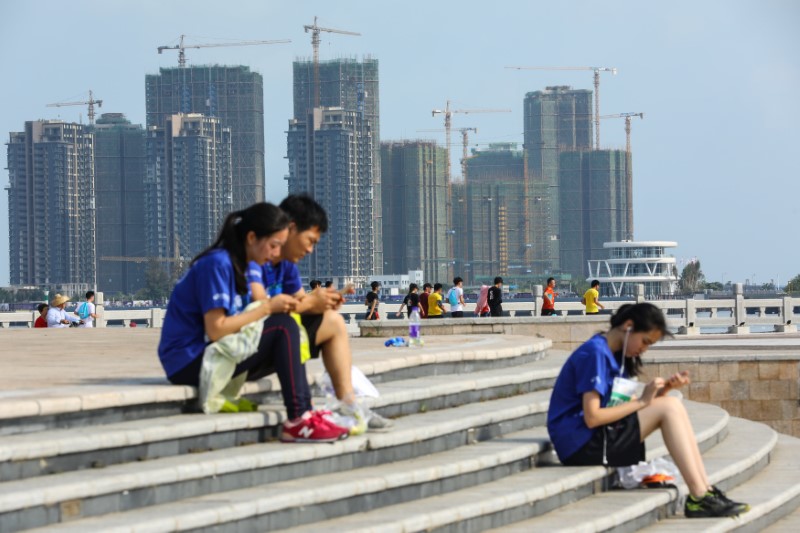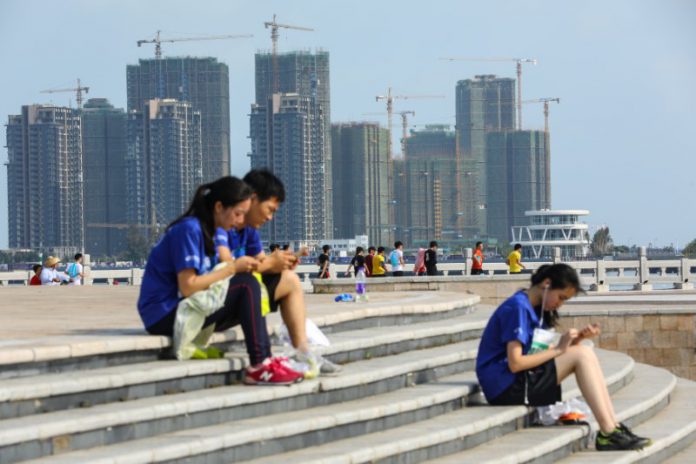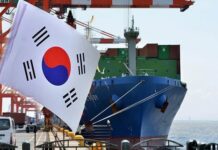
HONG KONG (Reuters) – Tough measures to cool the house market in China's resort island of Hainan have placed the brakes over a property boom and underscore the insurance policy risks developers and investors face because government efforts to rein in prices.
Home prices in Hainan, recognized for its resort-lined beaches, recorded China's second-fastest monthly price development of April, spurred by Beijing's resolve for promote this island province like a tourism hub and free trade zone.
But new measures in April restricting non-residents from buying homes within the island, where non-locals normally comprise about Eighty percent of purchases, have caused sales to plunge.
Home transactions in Hainan in relation to area fell 14 % in May in comparison to April, and were down 41 percent originating from a year ago, according to the real estate property research firm CRIC. Official home price data for May can be due to be released on Friday.
The slide has come about as the state of hawaii Council maps out intends to transform Hainan into China's largest free trade zone and upgrade its core industries that include not just tourism, and also modern services and high technology.
China is imposing controls throughout the country to rein in rocketing property prices, often fueled by speculators. The challenging new measures in Hainan came after prices jumped by a lot more than Fifty % some developments after Beijing announced the creation of the disposable trade zone in mid-April.
"An absolutely free trade zone provides good prospects to your long-term economy so our company is very tolerant of it," said Andy Lee, us president with Centaline South China, a real estate agent. "The irony is, available on the market are positive they can't buy any properties."
Property agents inside resort island are now packing their bags because they seek greener pastures in other provinces.
Li Xuelong, a Hainan property agent, said a variety of colleagues had left the area during the past month, although clients had canceled purchases after authorities introduced the things they identified as China's "most stringent tightening measures".
"Most of my colleagues have moved to Guangxi and Yunnan to take into consideration businesses," Li said, dealing with two provinces nearby which might be also used often by tourists.
With a series of fresh cooling measures announced since late March, Hainan has effectively restricted non-residents from buying homes inside of a property market that was highly determined by tourism and foreign buyers.
Other measures include forbidding householders to trade properties within incomes of purchase.
The tropical island had attracted many buyers looking for holiday homes or property for speculation. Buyers came mainly from northern inland areas, where temperatures can fall below 30 degrees Celsius in the wintertime.
The cooling property market may ripple effects on tourism projects from the resort province, industry watchers said.
"Many developers entered Hainan to trade to outsiders," said Centaline's Lee. "Most of them are engaged in tourism property, to ensure the tourism organization is for facilitating the home and property business. With the most crucial business receiving water, the tourism projects may need to be suspended."
The central government hopes Hainan will reduce its addiction to property, but Lee said the transformation could take a big toll on city coffers, which derive over Half of these income from real estate, before the free trade zone positively impacts the area economy.
Developers said clearly there was nothing they can do hold on to your cooling measures to get lifted, although many said they meant to stop buying land in Hainan.
Michael Lee, finance director at Guangzhou R&F Properties (HK:2777), said the organization was without intends to adjust its Hainan sales strategy responding to your changes to our policy.
An executive of one other developer, who declined being named as he has not been authorized to talk with media, said the company planned to keep through to its remaining unsold apartments, positive their value would increase over time.
"We will seek out more land bank in third- and fourth-tier cities where there's less tightening," the manager said. "The country's policies kept changing and we must adjust ourselves."
In late April, local media reported that some developers had allowed buyers to have around Hainan's home purchase restrictions by making use of rental contracts or forward-dating agreements to purchase apartments.
"Yet this can be dangerous both for developers and buyers, because regulations may change again whenever," said Li, the home and property agent.















